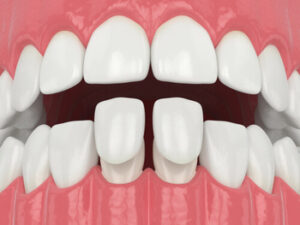Introduction
Dental veneers, specifically porcelain and composite veneers, are becoming increasingly popular in cosmetic dentistry. They offer a transformative solution for those desiring a perfect smile, addressing everything from chipped teeth to uneven teeth shades. But a question that frequently surfaces is, “Are veneers permanent?” As people invest time, emotions, and money into achieving that picture-perfect smile, it’s vital to understand how long veneers last and what to expect when considering them as a solution to enhance natural teeth.
What Are Dental Veneers?
Dental veneers are thin, custom-made shells crafted from porcelain or composite materials designed to cover the front surface of teeth to enhance their appearance. These veneers come in two main types: composite and porcelain. Choosing porcelain and composite veneers often depends on the patient’s preference, aesthetic goals, and budget. One of the significant advantages of opting for dental veneers in cosmetic dentistry is their ability to transform a smile, addressing concerns like discolouration, chipped teeth, or uneven spacing. When chosen and maintained properly, veneers can offer a lasting solution to many aesthetic problems, rejuvenating one’s smile to its optimal brilliance.
The Lifespan of Veneers
The commitment to enhancing one’s smile using dental veneers often prompts a pivotal question: How long do veneers last? Delving deeper into cosmetic dentistry provides a clearer understanding of the average lifespan of these aesthetic enhancements, particularly the distinction between porcelain veneers and composite veneers.
Porcelain veneers are renowned for their durability and resemblance to natural tooth enamel. Typically, with appropriate care, they can sometimes last between 10 to 15 years or even longer. Their robust nature and resistance to stains make them popular among those seeking a long-term solution to dental imperfections.

While the material type plays a significant role in determining the lifespan of veneers, several factors can affect their longevity. The topmost is oral hygiene. Consistent and proper cleaning habits can significantly extend the life of porcelain and composite veneers. Regular dentist check-ups ensure veneers remain in prime condition and address potential issues early on.
Accidental trauma, such as impact from a fall or a sports injury, can also jeopardise the integrity of veneers. Furthermore, habits like teeth grinding, known medically as bruxism, can wear down veneers prematurely, reducing their lifespan. Using veneers to bite hard foods, like candies or ice, can also risk chipping or cracking them.
In conclusion, while both porcelain and composite veneers offer transformative potential, understanding their respective lifespans and the factors that can influence them is essential for those considering this dental procedure.
Are Veneers Truly Permanent?
The realm of cosmetic dentistry frequently grapples with a pertinent question regarding dental veneers: Are they truly permanent? To address this, viewing veneers from both a technical and a patient-centric viewpoint is essential.
From a technical standpoint, dental veneers are often classified as semi-permanent. While this might seem like a nuanced term, it signifies that while veneers are designed for long-term use and are permanently bonded to the natural tooth, they don’t last forever. The very nature of the materials, be it porcelain or composite resin, implies wear and tear over time, necessitating eventual replacement.
Veneers aren’t everlasting ties back to their construction and external factors. Every material has a finite lifespan, and while advancements in dentistry continue to extend the durability of veneers, they remain susceptible to damage from trauma, habits like teeth grinding, and even the natural ageing process of the teeth and gums they’re bonded to.
However, the term “permanent” can be somewhat subjective regarding patient expectations and care routines. Some patients might find their veneers lasting well beyond the expected lifespan because of meticulous oral hygiene, regular dentist check-ups, and a conscious effort to avoid potential damage. To them, veneers feel almost permanent compared to others who are less diligent.
Caring for Your Veneers
Investing in dental veneers is not just a financial commitment but requires dedicated care and attention. Like any significant investment in your appearance and health, maintenance is crucial. So, how can you ensure the longevity and aesthetics of your veneers?
The bedrock of veneer maintenance is undeniably oral hygiene. Ensuring that the surface and edges of veneers remain plaque-free is paramount. Although veneers resist staining and decay, the natural tooth underneath and surrounding gum tissue are not. Thus, regular brushing and flossing go a long way in keeping the oral environment healthy, which safeguards the veneers.
To maximise the lifespan of veneers, it’s essential to be mindful of certain habits. Hard foods, for instance, can be the nemesis of veneers, especially the composite type. Chewing on ice, hard candy, or even non-food items can lead to chipping or cracking. Opting for non-abrasive toothpaste is another key tip. Some toothpaste brands contain gritty particles meant for heavy stain removal. While they might be effective for natural enamel, they can scratch the polished surface of veneers over time.

Last but certainly not least, the dentist’s role in veneer maintenance is instrumental. Their expertise ensures proper placement and offers guidance on care routines, product recommendations, and prompt solutions to any veneer-related concerns.
While veneers offer a transformative solution to various dental imperfections, their lasting beauty and functionality largely hinge on attentive care and a synergistic relationship with one’s dentist.
Replacing and Repairing Veneers
Dental veneers, though designed for durability and aesthetics, are not invincible. Over time, wear and tear, trauma, or even individual habits can necessitate repair or complete replacement. Understanding when and why this is needed and the associated costs is crucial for anyone with or considering veneers.
One might wonder: Why would veneers need repair or replacement? The reasons are multifold. While porcelain veneers are stain-resistant, they might chip or crack, especially when subjected to trauma or consistent pressure, such as teeth grinding. Composite veneers, on the other hand, while versatile, can be more susceptible to staining and wear over time.
The signs indicating the need for intervention often include discomfort, noticeable chipping, discolouration, or even veneer detachment. A regular dental check-up can preempt many of these issues, but timely action is vital when they arise.
The replacement process involves the following:
- Removing the damaged veneer.
- Preparing the tooth surface again (which might include slight enamel reshaping).
- Bonding the new veneer.
While it might sound cumbersome, advancements in cosmetic dentistry have made the procedure efficient and more comfortable for patients.
When it comes to costs associated with maintaining veneers over the years, it’s essential to look at the bigger picture. Replacement or repair, though not frequent, is a part of the veneer journey. Investing in high-quality veneers might reduce the need for frequent interventions. Also, proper oral care and regular dental visits can minimise potential damage, reducing long-term costs.
In conclusion, while veneers offer a transformative smile makeover, maintenance might involve periodic repair or replacement. Being prepared for these eventualities, both in understanding and budgeting, ensures a sustained and radiant smile.
Conclusion
As we’ve discussed, the transformative journey with dental veneers is one of enhanced aesthetics and function. But it’s essential to acknowledge the semi-permanent nature of veneers. While they offer a significant period of smile enhancement, they are not immune to the trials of time and circumstances.
The longevity of veneers—be they porcelain or composite—hinges largely on proper care. Consistent oral hygiene, careful lifestyle choices, and regular dental check-ups are non-negotiable for ensuring they serve you well for the longest time possible. Moreover, personalised guidance can make all the difference. Every smile is unique, and so are its requirements.
Consulting your dentist is imperative for those seeking tailored advice or considering the veneer journey. They offer insights tailored to your specific needs and circumstances. And if you’re on the lookout for experts in the field, Dental 266 is your trusted partner. Dive into the world of veneers with confidence, knowing you’ve got the best at your service. Contact us at 02 9051 0600 today to schZedule your consultation!
References
Smile makeover with direct composite veneers https://www.ncbi.nlm.nih.gov/pmc/articles/PMC6076883/
Porcelain for veneers https://pubmed.ncbi.nlm.nih.gov/9893514/







